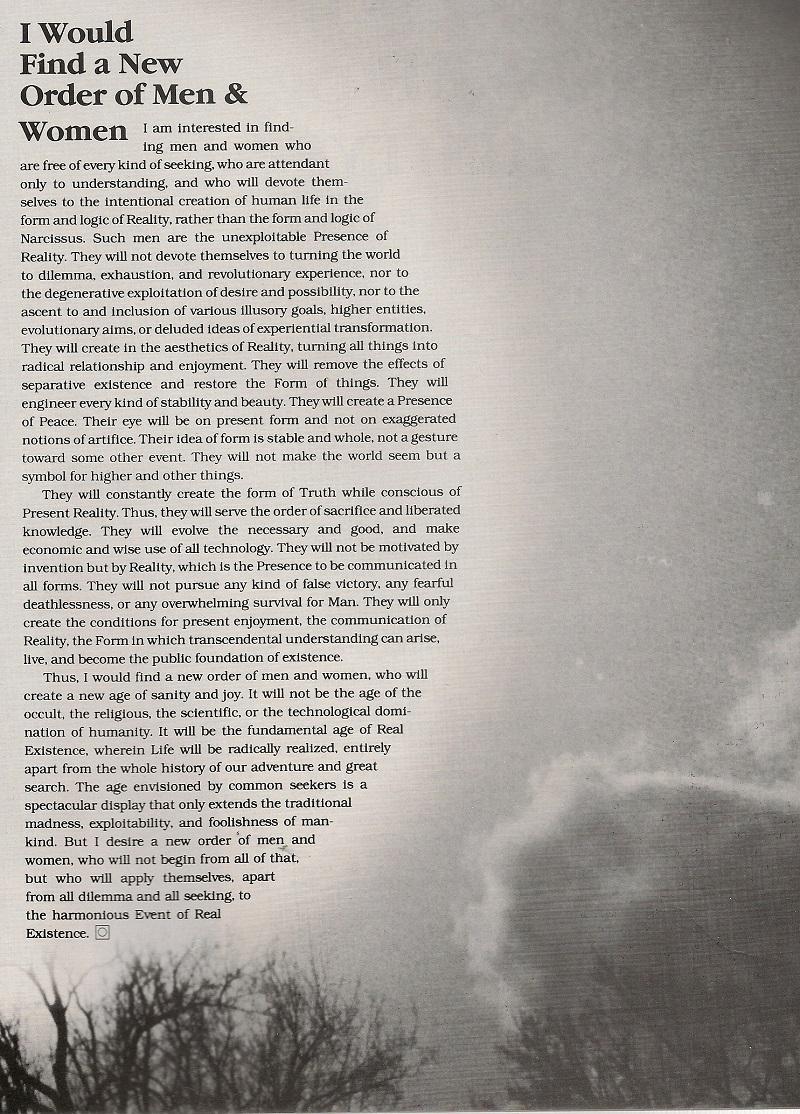
A Beezone Study

The following is adapted from early writings of Adi Da
Samraj (at the time – Franklin Jones) written in
1970.
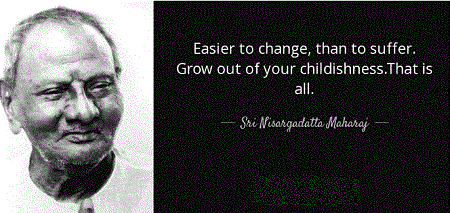
Children and
Childishness
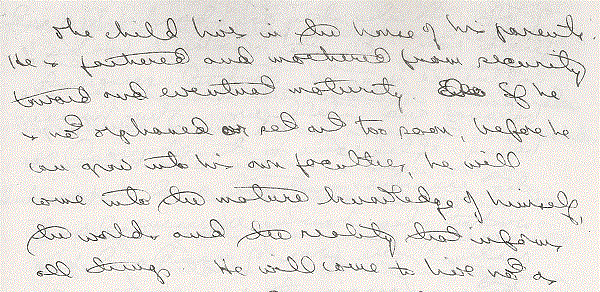
The child lives in the
house of his parents. He is fathered and mothered from
security toward and eventual maturity. If he can grow into
his own faculties, he will come into the mature knowledge of
himself, the worlds and the reality that informs all things.
He will come to live not as one who is fathered and mothered
in a universe wherein he has the status of a child, but as
one who is present as the same force and reality that
manifests as all things. He will represent and create as
that force, not through the exclusive, exploitive
representations of personal power, but in the wise, lawful
and priorly free nature, that is inclusive reality. This is
the life of understanding or wise happiness.
But children are often born abandoned, or they are
fathered and mothered unwisely, unequally, without
appropriate communications of the nature of life. Or else
they are abandoned or set free to soon. Or the mother or
father influence is given without appropriate balance and
intelligence. Thus, human beings often come to the physical
age that signifies maturity and responsibility without also
having experienced and realized the forces of mind and life
that are appropriate to creative maturity.
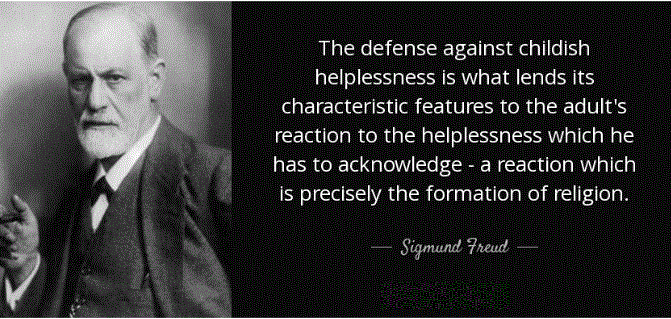
This being often the case, mankind devises means for
extending the period of childishness and its studies into
the ages of physical maturity. Thus, men live as children,
fathered and mothered in the universe, requiring the same
securities and lessons, and often never move beyond this
condition, even as life come to an end. Mankind in the great
search is the universal childishness that has not become
mindful as mature power and responsibility.
All the paths of mankind are means of extending the
conditions of childishness into the ages of maturity. They
serve to enforce and reinforce the childish dependency of
men. The means of seeking represent the conditions of
childish dependence to men. They represent the world as
father and mother in their various respects. And they lead
men toward the idealized goals of maturity that are the
hopes of children.
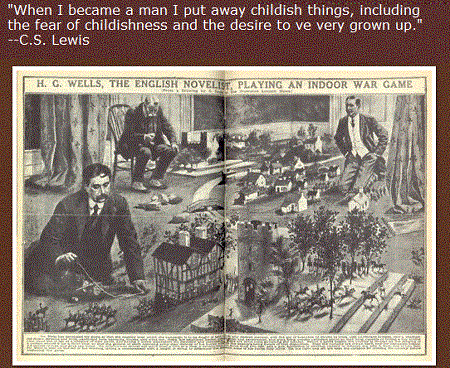
But only mature men can actually live the reality of men
apart from the motivations, structures, and idealism of
children.
My teaching addresses the man(or)womanhood of
humanity.

It is free of the symbolic and functional representations
that informs the mind and life of children. It no longer
conceives reality through the forms of experience that
represent reality to one who is dependent and not yet full.
Rather, reality is known and lived directly, prior to
experience and representation, as the Heart itself, the
“bright” and force of real consciousness that is his
own.
Therefore, my teaching is a radical presence in
the world. It is the obviation of childishness. It
demonstrates to men and women that their suffering is
simple the form of childishness carried over into a time
when they are trying to live creatively, as adults.
It is a communication of a mature mind that rests not
in the fathered and mothered symbols of experience but in
reality, the Heart itself, prior to experience, prior to
“birth.” It indicates to mankind that maturity is not
dependent on the circumstantial experiences of childhood,
but that real maturity is a decisive, self-born, deliberate
or intelligent event in any being requiring the same force
and difficulty in all, regardless of the fortunate or
unfortunate circumstances of childhood than any other.
No religion, no science, no adventure has prepared any
man better than any other. The same decisive understanding
is required in any case, and thus is a radical step beyond
the consolations or difficulties of childhood, a step
equally difficult for all. Whoever is old enough,
experienced enough to know he is suffering is fit to enjoy
the radical realization of my teaching.
What I Teach is not the usual Guru, Lord, the
father, and mother of men.
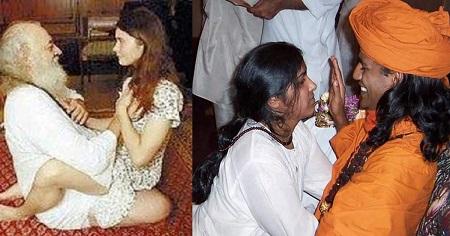
He requires no children for his enjoyment, nor does he
find wisdom in the childishness of men. He requires the
companionship of maturity, the communicated intelligence of
men who live in the conscious recognition of their own
nature and the nature of their experience. Therefore, he
does not establish the relationship of parent and child with
those to come to him. He acts to break the games of
perceptions of childishness of his companions. He does not
indulge or fortify the childishness of men. Therefore, he
takes men by the throat, demanding of them the only clarity
and spontaneity by which it is possible for them to survive.
He engages men in an often heroic encounter that breaks the
illusory pattern of seeking and leaves them present, man to
man, woman to woman, capable of intelligence, creative life,
and love. Everything else is shattered about the neck before
it is spoken, before it is swallowed.
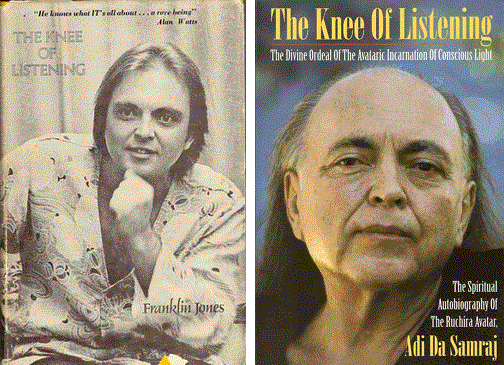
Franklin Jones (Adi Da Samraj), 1970
Further Readings:
